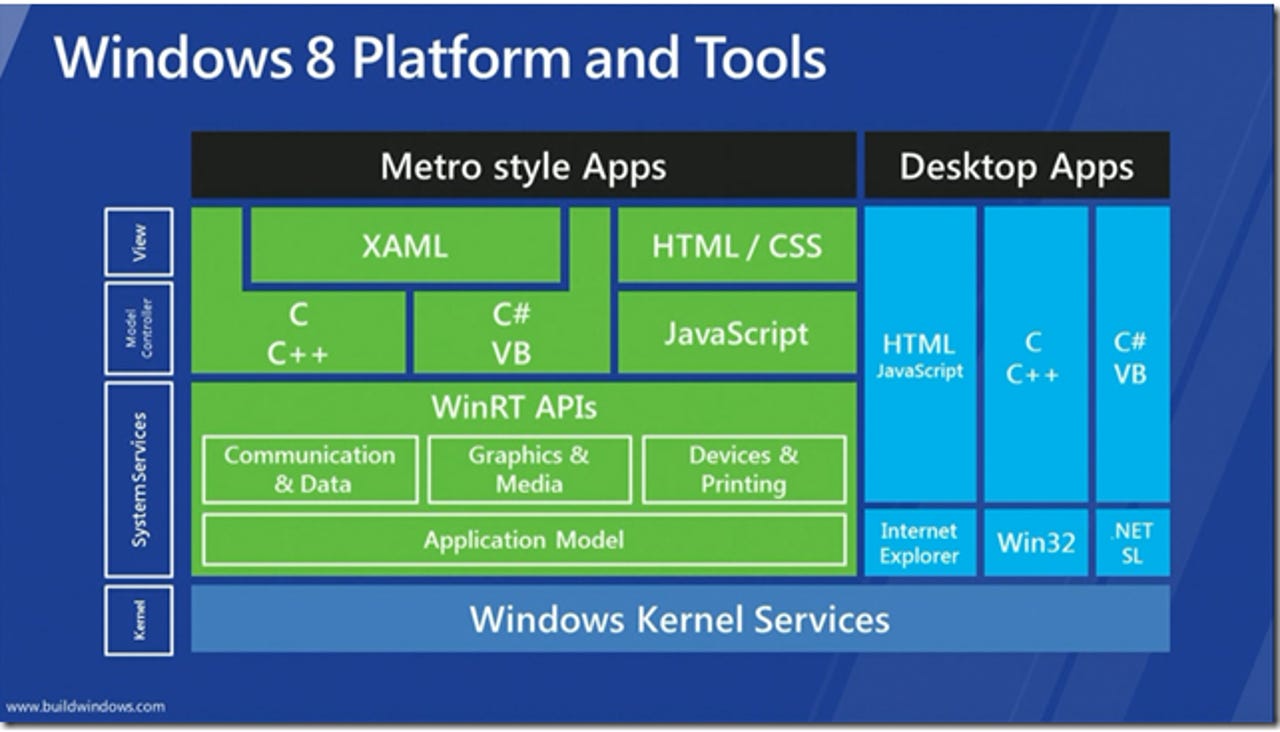Why 'post-PC' is a far bigger threat to Microsoft than Mac or Linux ever was

Microsoft has dominated the PC desktop and notebook markets for over two decades. Competitors have come, and competitors have gone and Microsoft is still on top. But the winds of change are approaching, and Microsoft is embarking on what I believe to be its biggest challenge yet ... the end of the road for the x86 architecture.

Microsoft stitched up the PC market tight. It was in the right place at the right time and managed to get to a position of dominance that has lasted over 20 years. It's been a good run. But Microsoft's success was based on the PC, and we've now entered what is most definitely a 'post-PC' era. What is 'post-PC'? If the PC era was symbolized by big beige desktops and knee-breaking notebooks, 'post-PC' is the exact opposite. Small, lightweight, low-power, more personal devices. Think smartphones. Think tablets. But these are just the beginning. Devices such at the Google Chromebook will bridge that gap between the traditional PC-style devices that we all know and love, and the 'post-PC' device.
One surefire indicator that we are now in a post PC era is what buyers look for in a device. Those old metrics such as GHz and GB (or even for some, the physical size of the system) have given way to new metrics such as weight and battery life. 'Post-PC' has in many ways made the personal computer even more personal.
And Microsoft is positioning itself ready for the 'post-PC' era. It's seeing the 30-year-old reign of the x86 'Wintel' architecture is coming to a close and it is preparing for this. One such step is in making Windows 8 run on the ARM architecture. It's not the first time that Microsoft has ported its operating system to run on different platforms (remember MIPS, PowerPC and DEC Alpha). Microsoft has always had an eye on the future.
But this shift to 'post-PC' is dangerous for Microsoft. It's dangerous because it's a big transition. Windows is very much a PC product, and much of what makes Windows what it is simply won't carry forward to 'post-PC' devices. Let me offer up two examples.
First, legacy. One of the things that keeps people using Windows is excellent legacy support. Windows offers unprecedented support for old hardware and software. It's one of the things that Microsoft is good at doing. This comes at the cost of bloat and bigger install images, but increases in disk capacities and processing power have offset that. With the move to ARM, there is no such thing as legacy. The word will not apply. The slate will be wiped clean and it will be a fresh start.
Now that's not such a bad thing in many ways. Look at how Apple wiped the slate clean with iOS. It was a completely new platform, and people loved it. But it worked because Apple didn't call it Mac OS, but instead called it iPhone OS (the iOS name came later). There was no expectation of legacy support because it was clearly a completely new product. But Microsoft is still choosing to call its ARM OS offering 'Windows' and I believe that doing generates a certain level of user expectation that the platform won't be able to deliver. It's Windows, but mostly in name only.
Another problem is that Windows is primarily a desktop operating system. It's on the desktop that the OS really shines. It also works pretty well on notebooks and not so well on devices that have a cramped screen space such as netbooks. On tablets, it's a disaster. To help alleviate this Microsoft has developed a completely new user interface called Metro UI with the idea of making a one-size-fits-all interface that will work on a myriad of screen sizes and resolutions, from multi-monitor desktops to tablets. Now that's a gamble on all fronts. First Microsoft is forcing those traditional Windows users (folks running desktops) to adopt a totally new way of working. There are millions of Windows users out there who are used to the existing Windows paradigm, and these people are going to have to change the way they work because Microsoft wants to offer the same experience across a range of screen sizes.
Now that's a massive gamble. I know a lot of people who have considered making a switch from Windows, but one of the things that keeps them on the platform is that they know and are comfortable with the way the operation system works. Well, like it or not, these people are going to have to learn something new, and if they're having to learn something new, why stick with Windows?
Don't get me wrong, I'm all for progress, and I think that it is time that x86 platform start to fade away. But it feels to me that rather than making a controlled shift to a new platform, Microsoft is leaping into the unknown and taking every Windows user with them on some mystery ride. I don't understand why Microsoft feels that integrating tablets and desktops under the same OS is needed at this stage. I could understand having an eye for integration down the line, but unification now seems like too much, too soon.
Related: